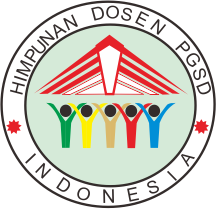Improvement of Teacher Pedagogical Competence through In House Training Activities
DOI:
https://doi.org/10.30595/dinamika.v13i2.11551Keywords:
In House Training, Pedagogic Competence, Elementary SchoolAbstract
This study aims to determine the effect of In House Training (IHT) in increasing teacher pedagogical competence. Pedagogic competence is one of the teacher competencies which have an important vital role in achieving student learning outcomes quality. If the teacher's pedagogical competence is low, it may affect the learning outcomes of students. One of the efforts is through activities to increase teacher pedagogical competence. One of the activities to increase teacher competence is through training. The most effective and efficient competencies improvement training model is In House Training (IHT). This training can accommodate teacher training needs with easy access. The type of data used is secondary data. The method used in this research is the literature study method. The data obtained were collected, analyzed, and concluded to get conclusions about the literature study. Based on the research results, literature studies from several research results and journal articles show that In House Training activities can improve teacher pedagogical competence.References
[1] Pit-ten Cate, I. M., Markova, M., Krischler, M., & Krolak-Schwerdt, S. (2018). Promoting Inclusive Education: The Role of Teachers' Competence and Attitudes. Insights into Learning Disabilities, 15(1), 49-63.
[2] Widodo, S. (2020). Peningkatan Kompetensi guru Pada Penerapan Pelaksanaan Pembelajaran Yang Interaktif, Inspiratif, Menyenangkan, Menantang, Memotivasi Melalui In House Training Di SMA Negeri 1 Ulujami. JOURNAL SCIENTIFIC OF MANDALIKA (JSM) e-ISSN 2745-5955, 1(3 Oktober), 225-233.
[3] Islam, R. (2020). Enhancing Instructional Leadership using in-House Training. i-Manager's Journal of Educational Technology, 17(2), 14.
[4] Sudarto, T., Asmawi, M., Yasin, M., & Suratman, A. (2019). Evaluation of Training Program for Warehouse Manager Candidates within the Warehouse Receipt System Scheme at Commodity Future Trading Regulatory Agency (COFTRA) Indonesia. International Journal of Mechanical Engineering and Technology, 10(3), 525-542
[5] Astuti, S., Slameto, S., & Dwikurnaningsih, Y. (2017). Peningkatan kemampuan guru sekolah dasar dalam penyusunan instrumen ranah sikap melalui in house training. Kelola: Jurnal Manajemen Pendidikan, 4(1), 37-47.
[6] Puspitasari, R., & Budiningsih, C. A. (2020, December). In House Training Optimization: Efforts to Improve Teacher Quality. In 2nd Yogyakarta International Conference on Educational Management/Administration and Pedagogy (YICEMAP 2019) (pp. 179-185). Atlantis Press.
[7] [7] Lengkanawati, N. S., Setyarini, S., Sari, R. D. K., & Moecharam, N. Y. (2015). In house training (IHT) model to improve the abilities of English teachers in developing teaching materials. Indonesian Journal of Applied Linguistics, 5(1), 37-43.
[8] Corinorita, C. (2017). Pelaksanaan In House Training Untuk Meningkatkan Kompetensi Guru dalam Menyusun RPP Di Sekolah Menengah Pertama. Suara Guru, 3(1), 117-122.
[9] Bowen, G. A. (2009). Document Analysis as a Qualitative Research Method. Qualitative Research Journal, 9(2), 27–40. https://doi.org/10.3316/QRJ0902027.
[10] Basri, H., & Rusdiana, A. (2015). Manajemen Pendidikan dan Pelatihan. Bandung: Pustaka Setia.
[11] Peraturan Pemerintah No. 19 Tahun 2005. Tentang Standar Nasional Pendidikan.
[12] Mulyasa, E. 2007. Standar Kompetensi Sertifikasi Guru. Bandung: PT. Remaja Rosdakarya.
[13] Nugroho, P. J. (2017). Pengembangan model pelatihan inovatif untuk meningkatkan kompetensi guru SD daerah terpencil. Sekolah Dasar: Kajian Teori dan Praktik Pendidikan, 26(2), 101-115.
[14] Suhelmidam. (2019). Improvement of Teacher Capability Using Contextual Teaching and Learning Models Through in House Training. Journal of Educational Sciences 3 (3), 281–291
[15] Arpius, A. (2020). EFFORTS TO IMPROVE TEACHERS'COMPETENCE IN PREPARING LESSON PLAN DURING THE COVID-19 PANDEMIC THROUGH IN HOUSE TRAINING. JURNAL PAJAR (Pendidikan dan Pengajaran), 4(6), 1259-1266.
[16] Erman, E. (2020). In House Training Meningkatkan Kompetensi Guru SMPN 5 Rakit Kulim dalam Pembelajaran Jarak Jauh. Jurnal Pendidikan Tambusai, 4(3), 3442-3449.
[17] Febrianis I, Muljono P, Susanto D. (2014). Pedagogical competencies-based Training Needs Analysis for Natural Science Teachers. Journal of Education and Learning, 8(2),144-151.
[18] Khaerani, N. C. (2016). Peningkatan Kompetensi Guru dalam Menyusun RPP melalui Kegiatan IHT (in house training). Didaktikum, 17(1).
[19] Susanto, R., Rozali, Y. A., & Agustina, N. (2019). Development of pedagogical competency models for elementary school teachers: Pedagogical knowledge, reflective ability, emotional intelligence and instructional communication pattern. Universal Journal of Educational Research, 7(10), 2124-2132..
[20] Syahrial, S., Asrial, A., Kurniawan, D. A., Chan, F., Hariandi, A., Pratama, R. A., ... & Septiasari, R. (2019). The Impact of Etnocontructivism in Social Affairs on Pedagogic Competencies. International Journal of Evaluation and Research in Education, 8(3), 409-416.
Downloads
Additional Files
Published
How to Cite
Issue
Section
License
Authors who publish with this journal agree to the following terms:
Authors retain copyright and grant the journal right of first publication with the work simultaneously licensed under a Creative Commons Attribution License that allows others to share the work with an acknowledgement of the work's authorship and initial publication in this journal.
Authors are able to enter into separate, additional contractual arrangements for the non-exclusive distribution of the journal's published version of the work (e.g., post it to an institutional repository or publish it in a book), with an acknowledgement of its initial publication in this journal.
Authors are permitted and encouraged to post their work online (e.g., in institutional repositories or on their website) prior to and during the submission process, as it can lead to productive exchanges, as well as earlier and greater citation of published work (See The Effect of Open Access).

Dinamika Jurnal Ilmiah Pendidikan Dasar is licensed under a Creative Commons Attribution 4.0 International License.














